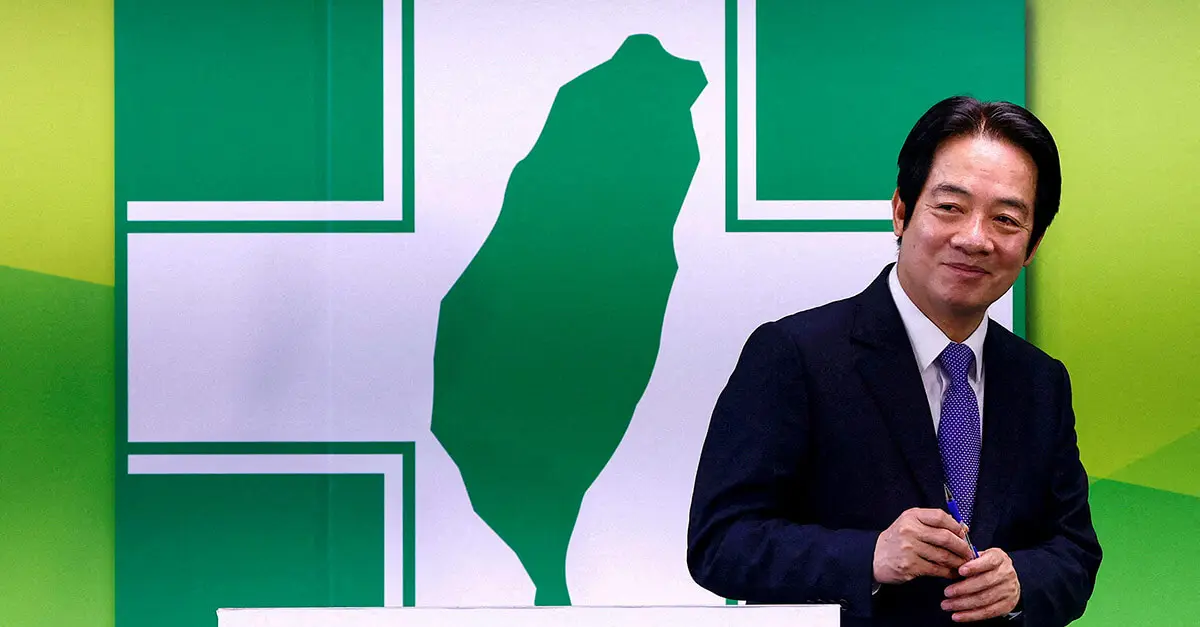The first step of Lai Ching-te

The son of a Taiwanese miner, William Lai completed his specialised studies on the spinal cord at Harvard University and then combined his career as a doctor with politics. He became vice-president of the government before standing for election in 2024, which he has just won with more than 40% of the vote.
The government of the People's Republic of China has labelled him a troublemaker, while the leaders of liberal democracies in Asia and the rest of the world see him as a strong asset for democracy and a solid leader to advance the conciliation that the United States seeks to promote. This consists of promoting a multilateral space in Asia in which China values the progress achieved in the last three decades, without renouncing the political aspiration of sovereignty over Taiwan, but respecting the de facto independence that Taiwanese democracy maintains.
The victory of the Democratic Progressive Party in the presidential elections over its rivals, the Kuomingtang Nationalists and the new Taiwan People's Party, and the simple majority obtained in the Legislative Chamber, consolidate the project of democratic progress on the island and strengthen the current status quo.
"Between democracy and authoritarianism, we will side with democracy", said William Lai upon winning the island's first presidential election in 1996. This followed years of uncertainty that began in the 1970s when the United States recognised the government of the People's Republic of China and opened the door of international order to the renewed Communist Party led by Deng Xiao Ping.
The success of market communism, China's entry into the World Trade Organisation and its exponential growth as an economic power left Taiwan in a position of growing political concern that was alleviated by Washington with the signing of the Taiwan Relations Act in 1979 and by the reinsurance measures to which Reagan committed himself in 1982. These basically consisted of defending the island's de facto sovereignty and the provision of military hardware and strategic assistance to deter China's possible armed intervention.
Taiwan's political legitimacy
But the great leap to democracy in 1996 provided the little Asian dragon with a political legitimacy that has consolidated its economy: diversified, oriented towards multilateral trade including with mainland China (35% of its exports) and specialised in high-tech sectors such as semiconductors, a market in which the Taiwanese are leaders. The victory of the PDP, faced with a Kuomingtang that is increasingly in favour of rapprochement with Xi Jinping's China, signifies the success of a long political strategy aimed at Taiwan maintaining an independent personality, although its diplomatic representation and external action is not comparable to that of a sovereign state, and it is weakened in numerous forums where the rest of the Asian allies and the United States must continue to support its interests.
Xi Jinping stated in 2014 that China's rejuvenation project involved the definitive integration of Taiwan into a single sovereignty, overcoming the formula of two systems and one state that Chinese leaders had taken for granted until then, including in Hong Kong. Since then, pressure from communist China, intimidating manoeuvres by its armed forces and a strategy of rivalry with the United States have marked years of increased tension for the Taiwanese. With the election of Lai Ching-te, the tension has not disappeared, although the US criterion of respecting the will of the people in a democratic country like Taiwan has been strengthened. It also strengthens the network of alliances in the Asia-Pacific region, where Taiwan is of paramount strategic value both because of its geopolitical situation and because of the difficulties that a hypothetical invasion and subsequent military control of the territory by an aggressor power such as China would pose.
The report "US - Taiwan Relations in a new era", prepared by the Council of Foreign Relations in 2023, provides an in-depth analysis to assess the best strategy for the United States in Taiwan. It analyses military, diplomatic and economic aspects in order to propose different options for action. The one most widely supported by experts is to maintain military support, specialising and upgrading the quality of the material sent and sharing resources. At the same time, however, diplomatic actions should be strengthened in order to make China understand that the achievements made over decades have permeated all three actors and can continue to do so in a new framework of economic progress and cooperative relations between them. And also to continue to help Taiwanese democracy find an international space where its experience can bring political, economic and technological value.
William Lai spoke of conciliation in his first public speech. A first step towards overcoming a complex and disorderly decade whose damaging effects have spilled over to the Asia-Pacific region and more strongly to the centre of Europe, Ukraine, the Middle East and Gaza. Whether the new Taiwanese president's rise to power is a firm step in the right direction must now be confirmed by Xi Jinping's political response. The future of stability in China, Asia and the global environment as a whole, which is more attentive to the Taiwanese elections than it has ever been, depends on it.

